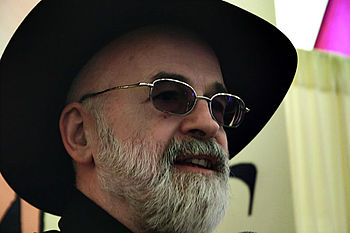I had a bit of a lightbulb moment the other day about social media and the driving of narrative. It was when I was doing my analysis on the recent coup attempt in Turkey.
Narrative Power

As any reader of Terry Pratchett knows, narrative has a power of its own. Humans are storyphiles. We just love stories, and where we have a narrative in play we will ignore inconvenient facts so that the narrative can continue. Some of what appears to constitute shock might simply be the disruption of narrative.
Social media and the filter bubble
Social media is well known for creating a filter bubble effect. This isn’t a new phenomenon, but the effects are becoming more obvious. See Guido Fawkes on the Brexit filter bubble.
Humans are social animals, and maintaining group cohesion requires a shared narrative about out situation and where we think we’re going. We don’t all need to have the same aspirations, but we do need to know that the aspirations of the rest of our group aren’t in conflict with our own.
Social media is an amplifier. It works to reinforce this in two ways.
- It is easy to find other people that share our world view
- It is easy to drop others from our information feed
Taken together these two aspects mean that it becomes hard to see the inconvenient truths. We see only what we expect. This means that even the most rational and objective thinkers can sometimes come to the wrong conclusions. On Facebook, and to an extent other media, even searching for opposing views doesn’t yield results. The views exist, but Facebook simply won’t show them to you. (See Guido above as an example.)
Controlling Your Narrative
There are two ways to think about this. One is scary and the other affirmative. Let’s start with scary.
A conspiracy theorist could use the power of narrative against us all. Never mind the facts, write an interesting story that changes the world. Make it appeal to self-interest. Link it to another narrative already in play. Show some convenient background alongside the playing narratives. Get people used to seeing your supporting ‘facts’. NB these don’t need to be actual facts, just plausible and in support of the narrative you want to introduce.
When you then start sharing your new narrative it already chimes with other dominant ones. So it gets seen, and shared, by many people. Over time it becomes one of the strong commonly held views, whether or not it is true.
On the affirmative side, you can break your own filter bubble. Go out of your way to read and follow people that challenge your world view. Build a cross section of viewpoints jn your social media. If you have to, create more than one account with separate identities and likes. Then cross share that stuff so that you can see it. Some of it will be uncomfortable, but if you can’t deal with the counter arguments then perhaps you need to reassess what you think is true.
Go on. Pop your filter bubble!






